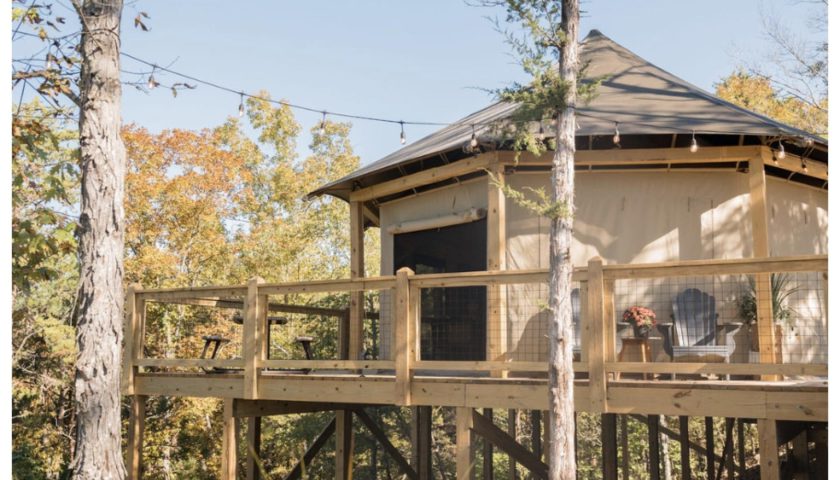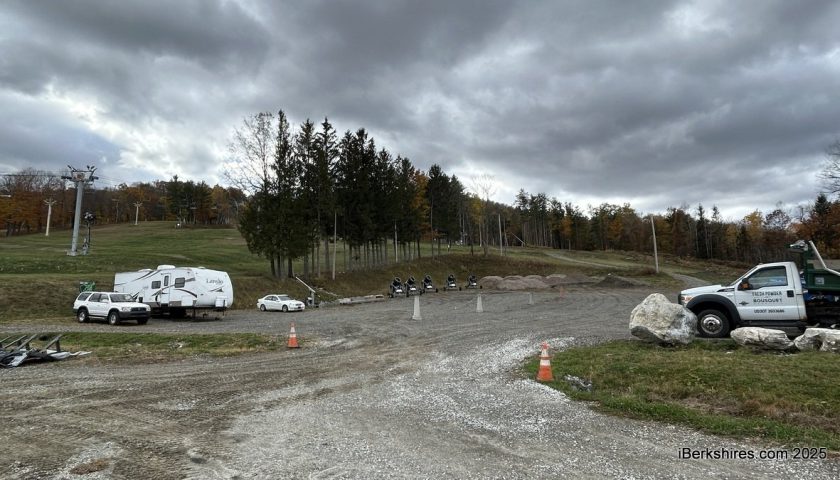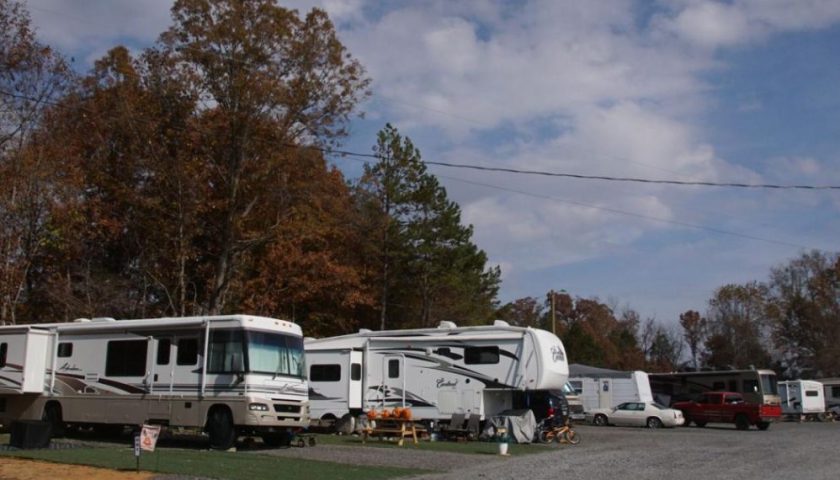
An RV park proposed at the intersection of NM 68 and County Road 110 in Llano Quemado got another green light after the Taos County Commission rejected an appeal and upheld the special use permit developers were granted in August by the county Planning and Zoning Commission.
The decision came in a 3–2 vote at the commission’s regular meeting Tuesday (Nov. 19). District 3 Commissioner Darlene Vigil, in whose district the project lies, and District 4 Commissioner AnJanette Brush voted to grant the appeal, which was led by Ranchos de Taos resident Rose Des Georges. Des Georges owns property in Llano Quemado near the proposed development.
District 1 Commissioner Bob Romero, District 2 Commissioner Miguel Romero and District 5 Commissioner Ronald Mascareñas voted against. Opponents could appeal the commission’s decision to 8th Judicial District Court if they choose.
The proposal, which includes 25 RV spaces and 15 long-term RV storage spaces, had drawn opposition from residents, who said it was incompatible with the surrounding area, would likely be a source of light pollution and would create traffic hazards at the intersection. The fact that the development is within the Las Comunidades del Valle de los Ranchos, a traditional historic district recognized under state law that includes the proposed RV park, did not enter into opponents’ arguments Tuesday.
“The traditional historic community statute only empowers against annexation and zoning by a neighboring municipality,” and a traditional historic community doesn’t have the authority of a political subdivision or even the standing of a neighborhood association for matters before county government, Hank Saxe, secretary of the Ranchos de Taos Neighborhood Association, told the Taos News. “Active neighborhood associations have standing to review and comment on special use permits within their areas. If the Llano Quemado Neighborhood Association had been active, it should have been called on to give input into the review of the RV park special use permit.
“Like almost all neighborhood associations in Taos County, it is not active,” Saxe added. (Des Georges is vice president of the Ranchos Neighborhood Association.)
The most compelling part of Des Georges’ detailed and fact-based presentation Tuesday asserted that New Mexico Department of Transportation traffic data cited by the Rodriguez family in their project application is “fundamentally flawed” because it was collected during the first year of the COVID-19 pandemic. UNM-Taos’ nearby Klauer Campus, for example, which accounts for a fair amount of traffic at the intersection, had very few people on campus in 2020.
Based on vehicle counts recorded by a group of opponents to the RV park, she said the numbers of vehicles using the intersection was at least 10 times greater than what the state observed in its study. Crashes at the intersection, Des Georges said, have occurred more frequently than what was conveyed in the developers’ application.
In addition to increased traffic it will bring to the intersection, opponents questioned the safety of larger recreational vehicles and trailers making turns at the high-speed intersection. Because the developers had to shift the entrance to the proposed RV park 50 feet closer to NM 68, which the entrance road parallels, a major argument in the appellants’ appeal was that RVs and travel trailers — or large RVs towing car trailers — would not be able to safely navigate a turn off southbound NM 68 onto County Road 110 and then immediately turn into the park’s entrance.
“Because of the alarming proximity between NM 68 and the entrance to this proposed RV park, they have essentially created a U-turn for large vehicles trying to access this property,” Des Georges said, adding that left-turning vehicles in the northbound lane of NM 68 — although there are deceleration lanes dedicated to turning vehicles in both directions — and RVs exiting the park will also “inevitably cause conflicts.”
Engineer Alex Abeyta, who designed and represented the project at the hearing, denied the traffic data was flawed and cited computer models he said showed RVs would be able to navigate the intersection and entrance.
Brush asked Abeyta where an RV would make a U-turn if a driver missed the park entrance on narrow County Road 110.
“It’s going to be up to the driver,” he said. “They could go down to the National Guard Armory; they could go down to County Road 110 at Los Cordovas [Road]; obviously they could go to UNM’s entrance — and of course UNM expressed concern that you wouldn’t want the U-turn happening there.”
Nearby resident Roberta Chambers lamented after the meeting, “I’m just gonna have everyone turning around in my driveway. They already do — every day, all day long.”
UNM-Taos is in the process of acquiring the shuttered armory, and is also building an observatory at its Klauer Campus, amplifying the RV park’s opponents’ concerns about light pollution. Although the project proponents say they will absolutely comply with Taos County’s dark skies ordinance, enforcement is lacking and examples of scofflaws abound across the county.
“UNM’s close to a mile away from the project,” Abeyta said. “They currently are not meeting dark sky lighting — there’s light shining straight up on all sides of the building. So I don’t buy this project is going to impact the observatory in a negative way. This project’s going to have dark sky lighting. It’s going to be well managed.”
Roy Troxel, vice president of El Valle Astronomers, said he’s worried the RV park approval will set a “bad precedent” that will lead to more development.
The bright commercial lights will hinder UNM’s curriculum for preparing students for New Mexico’s growing aerospace industry,” he told the Taos News.
Alexandra Goldman, community engagement contractor for Taos Housing Partnership, testified that while RV parks can provide refuge for folks who can’t find housing, an alternative proposition for permanent dwellings the Rodriguez family said it would consider if its RV park was rejected also makes sense.
“What we support is housing across the spectrum,” she said. “We believe RV parks are a piece of solving that puzzle. What I’ve heard also is that if this land is not developed into an RV park, it might be developed into more permanent housing. That’s also appealing.”
Felipe Rodriguez Sr. told the Taos News he and his sons are building permanent homes elsewhere in the Taos Valley, but that an RV park will serve the needs of temporary visitors like hunters, outdoor recreationists and other visitors. Felipe Rodriguez Jr. said that includes the homeless.
“It can help people with the stopgap,” he said.



